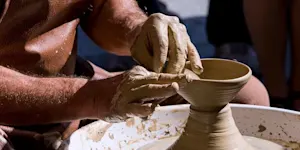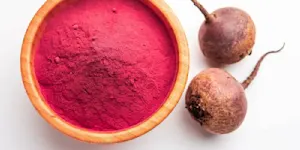What Makes This Word Tick
"Deft" is one of those words that delights the ear and the mind. It's short, sweet, and alludes to a nimbleness that suggests not just physical skill but a mental quickness too. You'll often hear it in admiration, a nod to someone who accomplishes a task with grace and ease.
If Deft Were a Person…
Imagine a master potter, their hands moving swiftly and confidently over the wheel, shaping clay as if it were second nature. That’s "Deft" for you—a person who doesn't just do things, but does them with skill and flair, leaving us wondrously mesmerized.
How This Word Has Changed Over Time
The word "deft" has remained relatively stable in its meaning over the centuries. Originally from the Old English "gedæfte," it meant mild or gentle. Since then, it has evolved to imply skillfulness, suggesting an evolution in which valued gentleness led to admired dexterity.
Old Sayings and Proverbs That Use Deft
While there aren't proverbs that specifically use "deft," the spirit of the word lives in phrases like "practice makes perfect," where the deftness comes from repeated and refined practice. Old-timey wisdom knew that deft hands stem from diligent effort.
Surprising Facts About Deft
One intriguing tidbit is that "deft" is often used in contexts like sports or artistry, yet it's quite rare in everyday conversation. Its understated elegance perhaps makes it a hidden gem among vernacular heavyweights like "smart" or "skilled."
Out and About With This Word
You might encounter "deft" in praise of a chef’s expertise with a knife, or perhaps in the careful maneuvering of a seamstress threading a needle in one seamless motion. It’s the unseen hero of craft.
Pop Culture Moments Where Deft Was Used
"Deft" gets its chance to shine in film and TV critiques. You might have read about an actor’s "deft touch" in bringing a character to life or a director’s "deft hand" in weaving complex storylines together.
The Word in Literature
In literature, "deft" acts as a vivid descriptor, painting picturesque scenarios without excess verbosity. It's the kind of word Hemingway might have used sparingly, appreciating its punch over prolixity.
Moments in History with Deft
While it might not have appeared in famous speeches, "deft" nevertheless describes the confident sutures of wartime surgeons or perhaps the diplomatic maneuvers at pivotal conferences—moments requiring precision and acumen.
This Word Around the World
The essence of "deft" beautifully translates into other languages. In French, one might use "adroit," while in Spanish, "diestro" or "hábil" shares the sentiments of skillful efficiency, enhancing our global lexicon.
Where Does It Come From?
Rooted in the Old English "gedæfte" meaning "mild" or "gentle," "deft" took its modern form around the 14th century, evolving to represent dexterity. It’s a testament to how language can gracefully pivot while holding on to its core gentility.
How People Misuse This Word
Some mistake "deft" for "daft," leading to amusing miscommunications. While "deft" is all about skill, "daft" leans towards silliness—mix them up, and you'll paint quite the unintended picture.
Words It’s Often Confused With
Daft: Confused due to phonetic similarity; "daft" means silly or mad, quite distinct from the skilled essence of "deft."
Adept: Both suggest skill, but "adept" implies a higher degree of mastery, often in expertise or knowledge.
Agile: Like "deft," it suggests nimble movement but focuses more on physical swiftness rather than skillfulness.
Additional Synonyms and Antonyms
Synonyms include "nimble," "skillful," and "adroit." On the flip side, antonyms such as "clumsy," "awkward," and "inept" highlight the word’s meaning through contrast.
Want to Try It Out in a Sentence?
"With a deft flick of her wrist, the pianist coaxed both power and tenderness from the keys, enchanting the audience with every note."
















